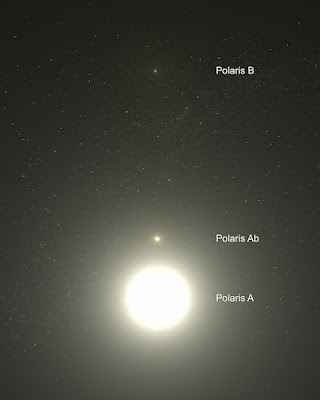A Garland of Poems for the Winter Solstice
Tuesday, December 21, 2021 @ 9:59 AM (CST)
Orphic Hymn
#79: “To the North Wind”
Translated
by Thomas Taylor (1758-1835)
Boreas, whose wintry
blasts, terrific, tear
The bosom of the deep
surrounding air;
Cold icy power, approach,
and favoring blow,
And Thrace a while desert
exposed to snow:
The misty station of the
air dissolve,
With pregnant clouds, whose
frames in showers resolve:
Serenely temper all within
the sky,
And wipe from moisture,
Aether's beauteous eye.
“Hymn
to the North Star”
By
William Cullen Bryant (1794–1878)
The sad and solemn night
Has yet her multitude of
cheerful fires;
The glorious host of light
Walk the dark hemisphere
till she retires:
All through her silent
watches, gliding slow,
Her constellations come,
and round the heavens, and go.
Day, too, hath many a star
To grace his gorgeous
reign, as bright as they:
Through the blue fields
afar,
Unseen, they follow in his
flaming way:
Many a bright lingerer, as
the eve grows dim,
Tells what a radiant troop
arose and set with him.
And thou dost see them
rise,
Star of the Pole! and thou
dost see them set.
Alone, in thy cold skies,
Thou keep’st thy old
unmoving station yet,
Nor join’st the dances of
that glittering train,
Nor dipp’st thy virgin orb
in the blue western main.
There, at morn’s rosy
birth,
Thou lookest meekly through
the kindling air,
And eve, that round the Earth
Chases the day, beholds
thee watching there;
There noontide finds thee,
and the hour that calls
The shapes of polar flame
to scale heaven’s azure walls.
Alike, beneath thine eye,
The deeds of darkness and
of light are done;
High towards the star-lit
sky
Towns blaze — the smoke of
battle blots the Sun —
The night-storm on a
thousand hills is loud —
And the strong wind of day
doth mingle sea and cloud.
On thy unaltering blaze
The half-wrecked mariner,
his compass lost,
Fixes his steady gaze,
And steers, undoubting, to
the friendly coast;
And they who stray in
perilous wastes, by night,
Are glad when thou dost
shine to guide their footsteps right.
And, therefore, bards of
old,
Sages, and hermits of the
solemn wood,
Did in thy beams behold
A beauteous type of that
unchanging good,
That bright eternal beacon,
by whose ray
The voyager of time should
shape his heedful way.
Polaris,
the North Star, is always overhead at the Earth’s North Pole. (Photo Credit:
Space Telescope Science Institute – Public Domain)
“Woods in Winter”
By Henry Wadsworth Longfellow (1807-1882)
When winter winds are
piercing chill,
And through the hawthorn blows the gale,
With solemn feet I tread
the hill,
That overbrows the lonely vale.
O'er the bare upland, and
away
Through the long reach of desert woods,
The embracing sunbeams
chastely play,
And gladden these deep solitudes.
Where, twisted round the
barren oak,
The summer vine in beauty clung,
And summer winds the
stillness broke,
The crystal icicle is hung.
Where, from their frozen
urns, mute springs
Pour out the river's gradual tide,
Shrilly the skater's iron
rings,
And voices fill the woodland side.
Alas! how changed from the
fair scene,
When birds sang out their mellow lay,
And winds were soft, and
woods were green,
And the song ceased not with the day!
But still wild music is
abroad,
Pale, desert woods! within your crowd;
And gathering winds, in
hoarse accord,
Amid the vocal reeds pipe loud.
Chill airs and wintry
winds! my ear
Has grown familiar with your song;
I hear it in the opening
year,
I listen, and it cheers me long.
“Songs
of Winter Days: IV”
By
George MacDonald (1824-1905)
A morning clear, with
frosty light
From sunbeams late and low;
They shine upon the snow so
white,
And shine back from the
snow.
Down tusks of ice one drop
will go,
Nor fall: at sunny noon
‘Twill hang a diamond-fade,
and grow
An opal for the Moon.
And when the bright sad Sun
is low
Behind the mountain-dome,
A twilight wind will come
and blow
Around the children’s home,
And puff and waft the
powdery snow,
As feet unseen did pass;
While, waiting in its bed
below,
Green lies the summer
grass.
“Picture-Books
in Winter”
(Excerpted
from A Child’s Garden of Verses)
By
Robert Louis Stevenson (1850-1894)
Summer fading, winter comes
—
Frosty mornings, tingling
thumbs,
Window robins, winter
rooks,
And the picture
story-books.
Water now is turned to
stone
Nurse and I can walk upon;
Still we find the flowing
brooks
In the picture story-books.
All the pretty things put
by,
Wait upon the children’s
eye,
Sheep and shepherds, trees
and crooks,
In the picture story-books.
We may see how all things
are
Seas and cities, near and
far,
And the flying fairies’
looks,
In the picture story-books.
How am I to sing your
praise,
Happy chimney-corner days,
Sitting safe in nursery
nooks,
Reading picture
story-books?
Sonnet
#13: “Hesperia”
(Excerpted
from Fungi from Yuggoth)
By
H. P. Lovecraft (1890-1937)
The winter sunset, flaming
beyond spires
And chimneys half-detached
from this dull sphere,
Opens great gates to some
forgotten year
Of elder splendors and
divine desires.
Expectant wonders burn in
those rich fires,
Adventure-fraught, and not
untinged with fear;
A row of sphinxes where the
way leads clear
Toward walls and turrets
quivering to far lyres.
It is the land where
beauty’s meaning flowers;
Where every unplaced memory
has a source;
Where the great river Time
begins its course
Down the vast void in
starlit streams of hours.
Dreams bring us close — but
ancient lore repeats
That human tread has never
soiled these streets.


No comments:
Post a Comment
Note: Only a member of this blog may post a comment.